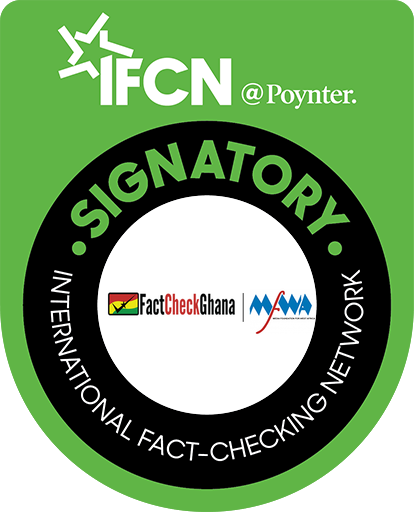At the launch of the 2020 manifesto of the New Patriotic Party (NPP) last weekend, President Nana Addo Dankwa Akufo-Addo delivered a speech that highlighted some of the promises in the previous manifesto of the NPP that his government had delivered.
The president’s speech also compared some of his administration’s achievements to the records of the erstwhile National Democratic Congress (NDC) government.
Fact-check Ghana has verified some of the claims of the president in the speech. Below are the verdicts and explanations.
Claim 1: “Having sense in the NPP means implementing policies which, according to the latest Ghana Living Standards Survey, has [sic] resulted in a decline in unemployment rates from 11.9% in 2015 to 7.3% in 2019.”
Verdict: Completely False
Explanation: The Ghana Living Standards Survey (GLSS) explains that “a person is considered as unemployed if he/she was not engaged in any work or had no attachment to a job or business and was “potentially” available for jobs.” The latest Ghana Living Standards Survey (GLSS 7) released in June 2019 indicated that unemployment rate (15 years and older) is 8.4% and 12.6% for youth unemployment (15-35 years). The previous survey (GLSS 6) which was released in August 2014, and not 2015 as presented by the President, indicated the unemployment rate (15 years and older) was 5.2% and 10.9% for youth unemployment (15-25 years). This indicates unemployment rate is rather rising and not declining.
Claim 2: “But it is important to tell him, just in case there are others like him around that Ghana is, today, in a position to be able to provide one hot meal for JHS 3 students who are back in school in the midst of a pandemic, to pay for six (6) months the water bills of all Ghanaians…”
Verdict: Misleading
Explanation: The absorption of water bills for Ghanaians was announced by the President to cover the months of April to June and further extended to July to September. According to the President, the relief package is part of the government’s measures to mitigate the impact of the COVID-19 on citizens as well as control its spread.
However, this package from government does not absorb the water bills of all Ghanaians but those who have access to water provided by government-owned and controlled sources.
According to data from the recent Ghana Living Standards Survey (GLSS), only 64% of households in Ghana have access to water from government-owned and controlled sources. These sources are made up of Ghana Water Company Limited (39.2%), Community Operated and Managed Water Systems (20.8%) and Community Water Sanitation Agency (4.0%).
The remaining 36% of households rely on water supply from non-governmental organisation (NGOs), wells, natural sources (rivers, streams, dugouts etc.), tanker supply/vendor provided, sachet and bottled water as their sources of water. Some of these sources come with bills that are not absorbed by government’s relief packages.
Therefore, even though the government is paying for six months water bill for Ghanaians, some Ghanaians are still paying for water.
Claim 3: “I take pride in the fact that free SHS and free TVET have been delivered, and our young people, and their parents and guardians, know that they will no longer be forced to stop school at JHS level because of financial difficulties.”
Verdict: Partly True
Explanation: In the 2017 budget statement (pg. 148), the finance minister, Ken Ofori Atta, announced government’s plan of implementing a free Senior High School (SHS) programme which included technical and vocation institutions.
“Mr. Speaker, as part of our commitment to improve access to education at all levels, Government will implement the comprehensive free public Senior High School (SHS) programme starting with the 2017/2018 academic year. This will include technical and vocational institutes,” the statement said.
However, the free SHS programme only covers a few Technical and Vocational Education and Training (TVET) Institutions in the country.
There are over 300 public TVET institutions nationwide which, according to the Ministry of Education, are managed under 19 different ministries including the Ministry of Education, Ministry of Employment and Labour Relations, Ministry of Trade and Industry and Ministry of Local Government and Rural Development.
Currently, according to the National TVET advocacy team, only 48 public TVET institutions which are managed under the Ministry of Education enjoy the free education policy. This has resulted in the advocacy team’s call on government ensure that the free SHS policy covers all TVET public institutions.
Mrs. Gifty Twum Ampofo, Deputy Minister for Education in charge of TVET, according to media reports, indeed confirmed in December 2019 that the free SHS policy does not cover all TVET institutions and, therefore, promised that government would, in September 2020, ensure all TVET students benefit from the free SHS policy.
“So by September next year, students who will be enrolled in the TVET education will enjoy the Free Education policy to make sure that every Ghanaian Child has enjoyed the Free Education policy,” she said during the 7th Graduation ceremony of Biriwa Technical, Vocational Education and Training in the Central Region.
It is therefore not wholly accurate when the president says the government has delivered a free TVET programme.



